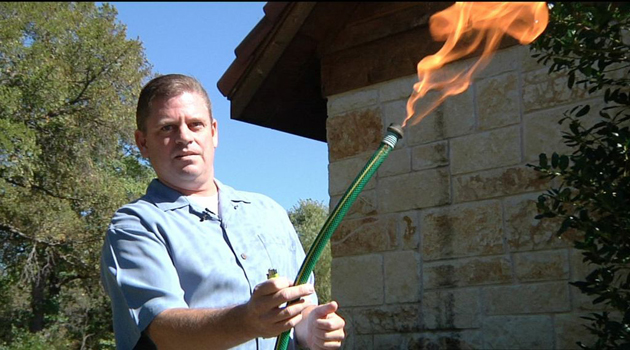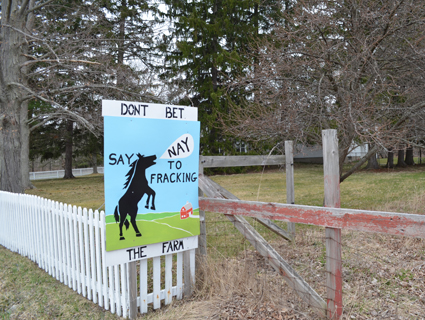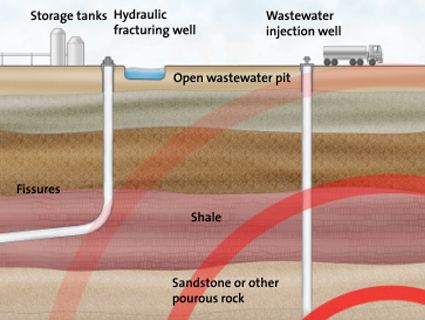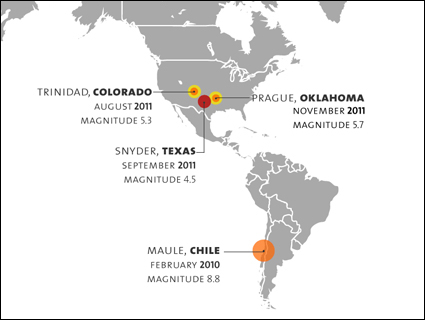
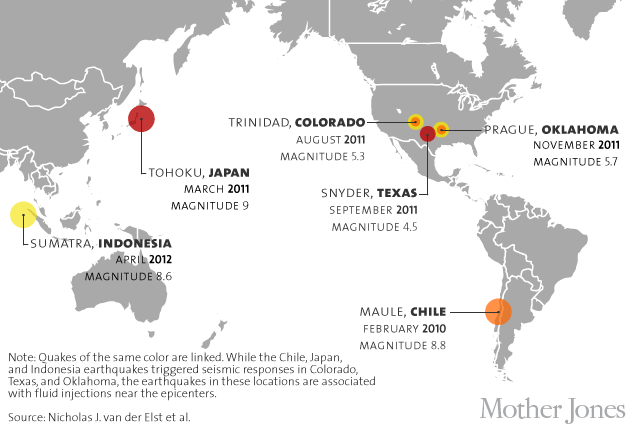
World map vector: Antun Hirsman/Shutterstock
Major earthquakes thousands of miles away can trigger reflex quakes in areas where fluids have been injected into the ground from fracking and other industrial operations, according to a study published in the journal Science on Thursday.
Previous studies, covered in a recent Mother Jones feature from Michael Behar, have shown that injecting fluids into the ground can increase the seismicity of a region. This latest study shows that earthquakes can tip off smaller quakes in far-away areas where fluid has been pumped underground.
The scientists looked at three big quakes: the Tohuku-oki earthquake in Japan in 2011 (magnitude 9), the Maule in Chile in 2011 (an 8.8 magnitude), and the Sumatra in Indonesia in 2012 (an 8.6). They found that, as much as 20 months later, those major quakes triggered smaller ones in places in the Midwestern US where fluids have been pumped underground for energy extraction.
“[The fluids] kind of act as a pressurized cushion,” lead author Nicholas van der Elst of the Lamont-Doherty Earth Observatory at Columbia University explained to Mother Jones. “They make it easier for the fault to slide.”
The finding is not entirely surprising, said van der Elst. Scientists have known for a long time that areas with naturally high subsurface fluid pressures—places like Yellowstone, for example—can see an uptick in seismic activity after a major earthquake even very far away. But this is the first time they’ve found a link between remote quakes and seismic activity in places where human activity has increased the fluid pressure via underground injections.
“It happens in places where fluid pressures are naturally high, so we’re not so surprised it happens in places where fluid pressures are artificially high,” he said.
The study looked specifically at Prague, Oklahoma, which features prominently in Behar’s piece. The study links the increased tremors in Prague, which has a number of injection wells nearby, to Chile’s February 27, 2010, quake. The study also found that big quakes in Japan and Indonesia triggered quakes in areas of western Texas and southern Colorado with many injection wells. The study is “additional evidence that fluids really are driving the increase in earthquakes at these sites,” said van der Elst.
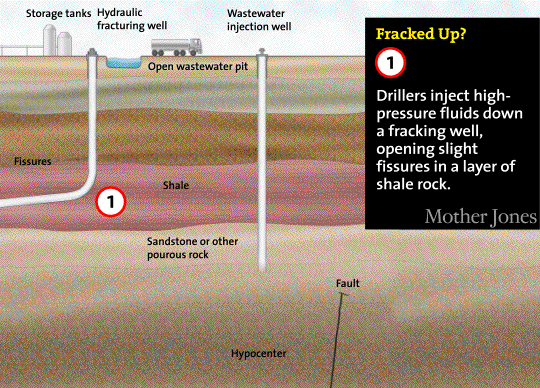
Animated GIF: fracked Up?
Drillers inject high-pressure fluids into a hydraulic fracturing well, making slight fissures in the shale that release natural gas. The wastewater that flows back up with the gas is then transported to disposal wells, where it is injected deep into porous rock. Scientists now believe that the pressure and lubrication of that wastewater can cause faults to slip and unleash an earthquake.
Illustration: Leanne Kroll. Animation: Brett Brownell
